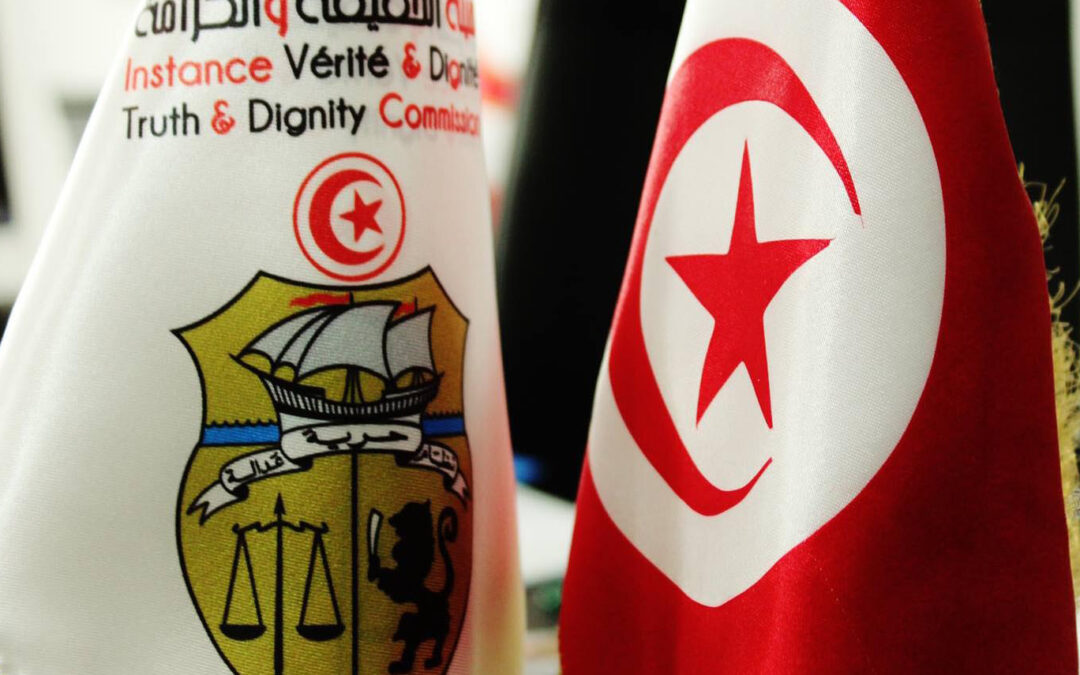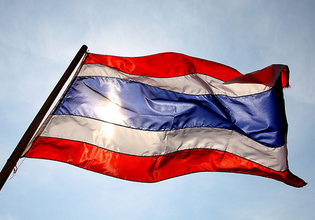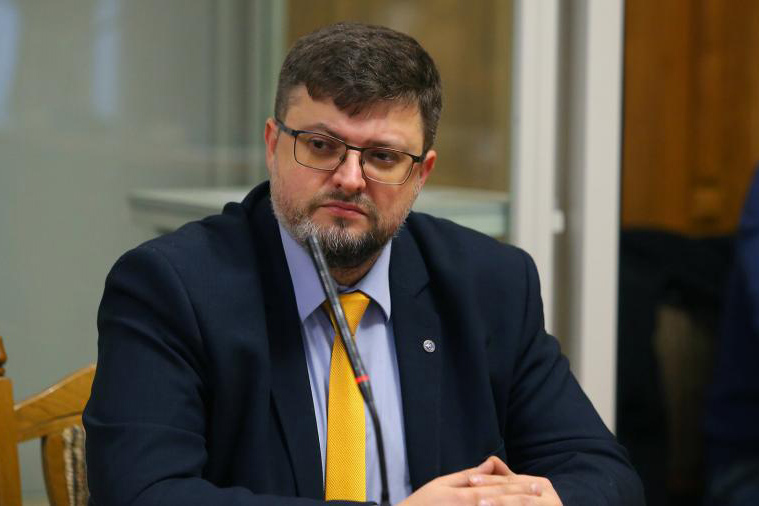
Apr 25, 2019 | News
The statement alerts the public of the danger of a bill which dismantles the specialized criminal chambers in Tunisia and replaces them with an institution which would guarantee impunity for those who committed gross violations of human rights in Tunisia between 1955 and 2013.
The statement has been signed by the ICJ as well as other members of the Coalition for Transitional Justice
The statement can be downloaded here:
Link to French Version
Link to Arabic Version

Apr 24, 2019 | News
Egypt is hosting an Africa human rights summit meeting beginning April 24, 2019, while its government is presiding over the worst human rights crisis in the country in recent decades.
The 64th Ordinary Session of the African Commission on Human and Peoples’ Rights (ACHPR), the African Union’s top rights body, will take place from April 24 to May 14 in Sharm al-Sheikh.
In addition to its systematic failure to respect and protect human rights at home, Egypt has also led efforts to undermine the Commission’s independence. The Commission should strongly raise Egypt’s human rights abuses at the meeting.
“Egypt is trying to appear like a country open for human rights delegates and summits while, at the same time, crushing all dissenting voices and its once-vibrant human rights community,” said Michael page, Middle East and North Africa director at Human Rights Watch.
“We know that many Egyptian and international organizations are not allowed to work freely in Egypt and cannot voice concerns without severe retaliation from the government,” he added.
The commission should ensure that all government and non-government delegations are able to participate freely in the summit. It should also make clear that it will strongly address any measures of reprisals by the Egyptian authorities against criticism of its practices.
A senior staff member of a leading Egyptian rights organization told Human Rights Watch that only three Egyptian human rights groups were considering participating in the summit because most of the groups were concerned about retaliation by the government.
In recent years, the Egyptian authorities have relentlessly cracked down on non-governmental organizations, issued the 2017 draconian law that effectively bans all independent work by nongovernmental groups, and prosecuted scores of staff workers of Egyptian organizations.
It has also frozen the assets of the most prominent human rights defenders in the country and their organizations and issued travel bans against scores of them.
In April 2018, the government said it would repeal the abusive 2017 NGO law but the government has not made a new draft law public.
The Egyptian authorities have also taken reprisals against human rights defenders and activists for cooperating with regional and international human rights monitors, including United Nations agencies and experts.
In late 2018, Egyptian authorities detained several citizens who met with the UN special rapporteur on adequate housing during her official mission to Egypt, as well as demolishing their houses and banning their travel. The government denied any wrongdoing and accused the UN High commissioner on human rights and other UN officials of breaching UN standards and adopting the “lies” of “terrorist” organizations.
In September 2017, officials stopped Ibrahim Metwally, a lawyer and co-founder of the Associations of the Families of the Disappeared, from traveling for meetings with UN officials in Geneva. Security agencies arrested him at the airport and held him incommunicado for a few days. He is still held in “pretrial detention” for farcical charges.
The Egyptian government has tried to undermine the independence of the Commission through spearheading the adoption of African Union’s Executive Council’s Decision 1015, paragraph 5. The provision, which was passed in June 2018, undermines the Commission’s independence by subjecting its work to control by the African Union member countries.
The Egyptian government has ignored decisions and resolutions the Commission and its experts have made addressing several violations and abuses including the crackdown on civil society, restrictions on freedom of religion, unfair trials and mass death sentences, arbitrary arrests, and sexual violence.
The ACHPR session comes at a time when the Egyptian authorities have been severely oppressing dissent and obliterating any space for peaceful expression or gathering before the public vote held between April 19-22 on highly draconian constitutional amendments that will strengthen the military control of public and political life and further undermine the already weak judicial independence.
Egyptian human rights organization have documented the arrests of over 160 people, often in mass arrests, since February in relation to the ongoing crackdown on dissidents and perceived critics.
These amendments, and several other laws that President Abdel Fattah al-Sisi has approved in recent years, such as new media laws and laws to expand the use of military courts to try civilians, violate international law standards including the African Charter on Human and Peoples’ Rights.
Since al-Sisi secured a second term in elections that were largely neither free nor fair in March 2018, his security forces have escalated a campaign of intimidation, violence, and arbitrary arrests against political opponents, activists, and many others who have voiced even mild criticism of the government.
The Egyptian government and state media have framed this repression under the guise of combating terrorism, and al-Sisi has increasingly invoked terrorism and the country’s state of emergency law to silence peaceful activists.
In July 2013, the African Union Peace and Security Council suspended Egypt’s membership in all African Union activities following the forcible removal of former President Mohamed Morsy by the army, which was led by al-Sisi, then the defense minister. The suspension ended after al-Sisi was elected President in June 2014.
But Egypt has failed to effectively investigate or to hold any official or member of the security forces accountable for the mass killings of protesters in the summer of 2013 despite several national and international calls, including by the ACHPR, and despite incriminating evidence.
In August 2013, Egyptian security forces most likely killed at least 817 people in a few hours during its violent dispersal of the largely peaceful pro-Morsy sit-in in Cairo’s Raba’ Square. The killings likely amounted to crimes against humanity.
“Through such summits, Egypt is trying to whitewash its dire record of abuses,” George Kegoro, executive director of Kenya Human Rights Commission said. “The African human rights commission should take the opportunity of this meeting to vigorously engage the Egypt government on its own actions that threaten the rights, and the very lives, of many Egyptians.”
The co-signing organizations are:
Andalus Institute for Tolerance and Anti-Violence Studies
Belady Center for Rights and Freedoms
Cairo Institute for Human Rights Studies
Committee for Justice|
EuroMed Rights
Egyptian Front for Human Rights
Human Rights Watch
Kenya Human Rights Commission
The Egyptian Commission for Rights and Freedoms
The Freedom Initiative
The International Commission of Jurists
Egypt-African Rights Summit-News-2019-ARA (Press release, PDF, Arabic)
Contact:
Said Benarbia, Director of ICJ’s MENA Programme, t: +41-79-878-35-46 ; e: said.benarbia(a)icj.org

Apr 22, 2019 | Advocacy, News, Non-legal submissions
Today, the ICJ submitted recommendations to the Council of the State calling for the repeal or amendment of National Council for Peace and Order (NCPO) and Head of the NCPO (HNCPO) orders and announcements in line with Thailand’s international human rights law obligations.
The ICJ was informed by the Ministry of Foreign Affairs that the Council of the State had been tasked to review the necessity and relevance of announcements, orders, and acts of the NCPO and of the HNCPO in February 2019.
The review process is in line with Thailand’s declaration to the UN Human Rights Committee in its Follow-Up to the Concluding Observations of the Committee, submitted on 18 July and published on 10 August 2018.
In its submission to the Council of the State, the ICJ has called for the review process of HNCPO and NCPO announcements and orders to be carried out with increased public participation, openness, and transparency.
The ICJ has also made recommendations on the repeal and amendment of the following HNCPO and NCPO orders and announcements since they are clearly inconsistent with Thailand’s international human rights law obligations and the 2017 Constitution, and are neither necessary, nor proportionate, nor relevant to the current situation:
- Orders that provide the military with superior powers beyond civilian authorities;
- Orders that allow military courts to prosecute civilians;
- Orders that infringe on the rights to freedom of expression and assembly, restrict media freedom and the right to information; and
- Orders that infringe on community and environmental rights.
As main priorities, the ICJ has recommended that:
a) the exercising of law enforcement powers by military personnel to arrest and detain suspects in places not formally recognized as places of detention without judicial review should end;
b) all cases of civilians facing proceedings before military courts be transferred to civilian courts, and all civilians convicted of an offence in military courts be guaranteed a re-trial in civilian courts; and
c) all other HNCPO and NCPO orders and announcements should be repealed or amended to bring Thailand in compliance with its international human rights law obligations, and to ensure that the rights to freedom of expression, opinion and assembly, and environmental rights, among others, be respected.
Thailand-civilian prosecutions military courts-Advocacy-Non-legal submissions-2019-ENG (PDF in English)
Thailand-civilian prosecutions military courts-Advocacy-Non-legal submissions-2019-THAI (PDF in Thailand)
Further readings:
Post coup’s legal frameworks
Thailand: ICJ alarmed at increasing use of arbitrary powers under Article 44
Joint submission to the UN Human Rights Committee by the ICJ and Thai Lawyers for Human Rights
The ICJ and other groups made a joint follow-up submission to the UN Human Rights Committee
Thailand: statement to UN on situation for human rights
ICJ and Thai Lawyers for Human RIghts’ submission to the Universal Periodic Review (UPR) of Thailand
Military officers in law enforcement missions
Thailand: immediately end the practice of arbitrarily detaining persons in unofficial places of detention
Thailand: The ICJ and Human Rights Watch express concerns over detentions
The Use of Military Court
Thailand: transfer all civilians to civilian courts
Thailand: End prosecution of civilians in military tribunals
Thailand: ICJ welcomes Order phasing out prosecution of civilians in military courts but government must do much more
Freedom of expression and assembly
Thailand: lifting of the ban on political activities is welcome but more is needed
Thailand: Lift ban on political gatherings and fully reinstate all fundamental freedoms in Thailand
Thailand: misuse of laws restricts fundamental freedoms (UN statement)
Community and environmental rights
“Development” and its discontents in Thailand
Thailand: ICJ submission to the UN Committee on Economic, Social and Cultural Rights

Apr 12, 2019 | Advocacy, News, Open letters
The ICJ sent a letter urging Singapore’s government to refrain from passing into law the Protection from Online Falsehoods and Manipulation Bill 2019 (‘Online Falsehoods Bill’) in its current form.
The letter was sent to Singapore’s Prime Minister, Deputy Prime Ministers, Minister for Law and Speaker of the Parliament.
The bill is reportedly expected to be adopted and come into force in the second half of 2019.
The ICJ acknowledged the efforts of Singapore’s government to attempt to counteract potential infringements on human rights and fundamental freedoms which may emerge from abusive communications involving the spread of misinformation. It noted however that the bill may, contrary to the object and purpose of its introduction, result in far-reaching limitations on the rights to freedom of expression, opinion and information.
The ICJ indicated that its provisions present a real risk that it can be wielded in an arbitrary manner to curtail important discussion of matters of public interest in the public sphere, including content critical of the government. Critical dissent, free exchange and development of opinions, and free access to information are necessary to maintain an informed society and ensure transparency, accountability and informed debate on crucial matters of public interest.
The letter included a legal briefing highlighting the ICJ’s concerns regarding provisions of the bill which contravene international human rights law and standards.
Singapore-online regulation bill letter-advocacy-open letter-2019-ENG Letter (PDF)
Singapore-online regulation bill briefing-advocacy-open letter-2019-ENG Briefing (PDF)
See also
ICJ, ‘Singapore: Parliament must reject internet regulation bill that threatens freedom of expression’, 4 April 2019, https://www.icj.org/singapore-parliament-must-reject-internet-regulation-bill-that-threatens-freedom-of-expression/

Apr 12, 2019 | News
Today, the ICJ expressed concern at the criminal proceedings against Andriy Domanskyi, a lawyer practicing in Ukraine, known for representing individuals facing political prosecution and defending journalists.
The ICJ has called on the Ukrainian authorities to drop any criminal proceedings which may result from the identification of the lawyer with his clients and to ensure that the lawyer’s rights are protected and that he can continue to carry out his professional activity without improper interference, intimidation or threat.
On 5 April Domanskyi was issued a note of suspicion in a criminal proceeding reportedly initiated in 2013 concerning the “privatization of municipal premises”.
Criminal proceedings were initiated one day after the commencement on 4 April of a trial of his client Kirill Vyshynskyi, Chief Editor of RIA Novosti Ukraine recently changed with high treason and a number of other crimes.
Domanskyi considers these criminal proceedings against him are linked with his professional activity and are a means of putting pressure on him as a result of work on this high-profile case.
Earlier this year, on 17 January, while Domanskyi represented Vyshynskyi in a court hearing on the lawfulness of his arrest in Kherson, the lawyer’s home, office premises and his assistant’s relatives’ premises in Kyiv were searched by the officers of the General Prosecutor’s Office.
This took place only a few days after the Security Service of Ukraine (SBU) publicly announced that the investigation regarding Vyshynskyi had been terminated.
While these searches were sanctioned by the court, another search was conducted on the same day and was sanctioned by an investigator rather than the Prosecutor General or his Deputy or the Prosecutor of Kyiv City, as provided by the Law of Ukraine “On advokatura and advocates’ activity”.
The lawyer connected these searches to the fact that at that time he repeatedly filed motions to release Vyshynskyi on bail, with himself acting as a guarantor on the bail.
Any criminal proceedings against the lawyer amounting to harassment or reprisals for his professional activities would be highly problematic.
In recent years, the ICJ has witnessed an alarming increase in the number of cases of interference with the work of lawyers, including use of legal proceedings, threats or physical attacks on lawyers in Ukraine.
As was confirmed during an ICJ mission carried out only last month, searches of lawyers’ premises are often performed without due respect to procedures prescribed by law and result in undermining the independent work of lawyers and respect of procedural rights guarantees under national and international law.
Principle 18 of the UN Basic Principles on the Role of Lawyers states that, “lawyers shall not be identified with their clients or their clients’ causes as a result of discharging their functions.”
As affirmed by the Basic Principles, governments must ensure that lawyers “are able to perform all of their professional functions without intimidation, hindrance, harassment or improper interference” and “shall not suffer, or be threatened with, prosecution or administrative, economic or other sanctions for any action taken in accordance with recognized professional duties, standards and ethics.”
“Investigative and other law enforcement authorities in Ukraine must stop harassment of lawyers, including by improperly associating them with their clients or their clients’ causes, and carrying out searches of lawyers’ offices and documents in violation of national law and procedure as well as international human rights standards,” said Temur Shakirov, ICJ Senior Legal Adviser.
“In this regard, the ICJ stresses that this troubling pattern of attacks affects not only individual lawyers but also the legal professional as a whole. The Ukrainian authorities should take prompt and effective measures to ensure that lawyers are not identified with their clients or their client’s causes and that the safety and independence of lawyers is guaranteed in law and in practice,” he added.
Additional information:
On 4-8 March, the ICJ carried out a research mission to Ukraine on the independence and security of lawyers. Following the mission, the ICJ called on the Ukrainian authorities to take urgent steps to ensure the physical safety of lawyers and to bring to justice those responsible for a series of violent attacks against them.
Ukraine-Domansky statement-Advocacy-2019-UKR (story in Ukrainian, PDF)









